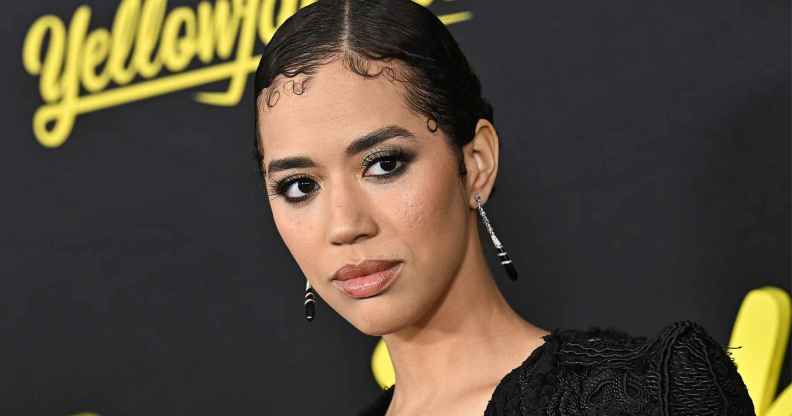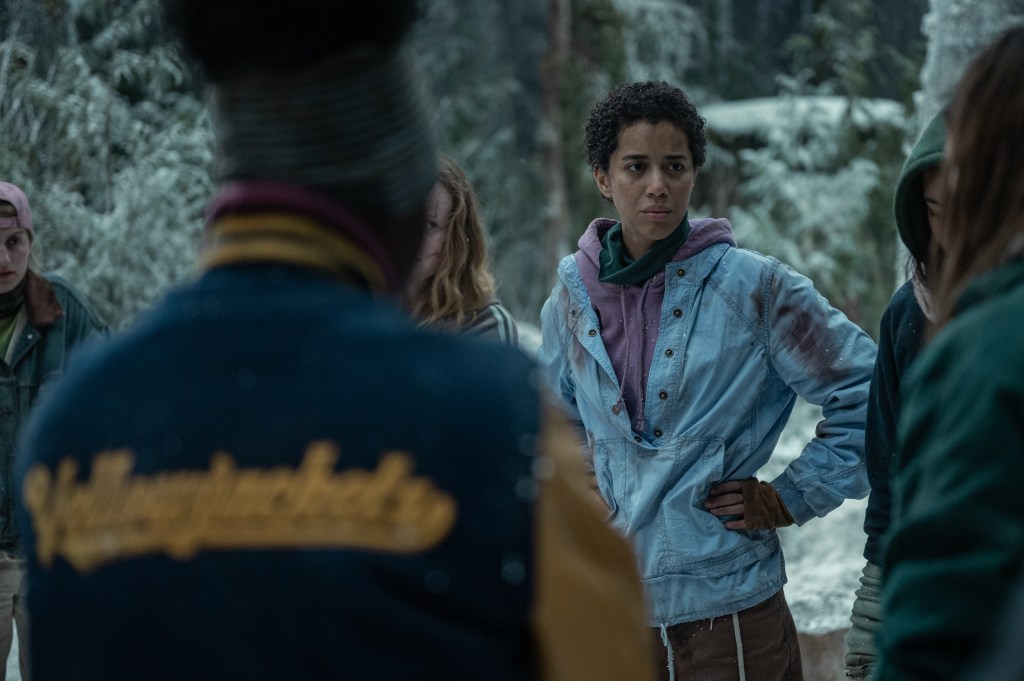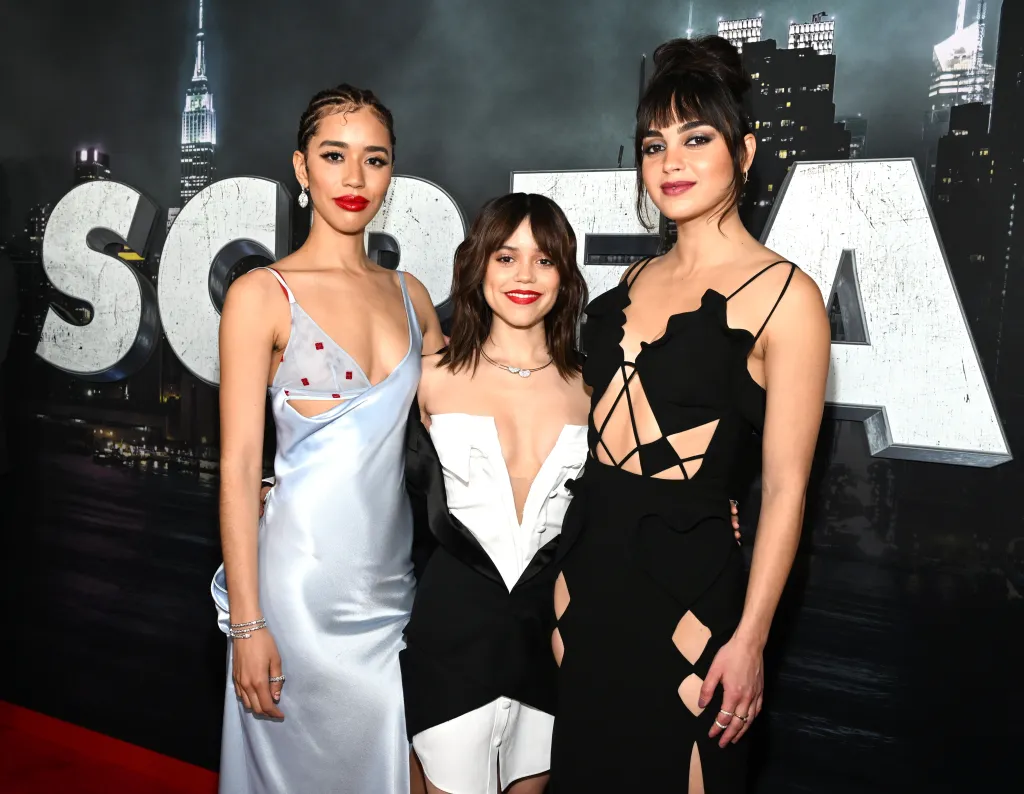Scream star Jasmin Savoy Brown had serious doubts about doing horror: ‘So straight and white’

Jasmin Savoy Brown has addressed the lack of diversity in the horror genre. (Getty)
Scream star Jasmin Savoy Brown says she was initially uncertain about doing horror movies due to the historic lack of diversity in the genre.
Do you like scary movies? This signature Ghostface line is on everyone’s lips right now following the latest instalment of Scream which has terrified and thrilled fans in equal measure.
And at the centre of it all is Jasmin Savoy Brown who is cooking up a storm right now with her captivating characters.
Whether you’ve watched her devour human flesh in season two of Showtime’s hit psychological thriller Yellowjackets as Taissa, or fight for her life as Mindy Meeks-Martin in everyone’s favourite horror franchise, her roles are bringing fresh and much-needed queer Black representation to the genre.
Alongside keeping us on the edge of our seats, Brown has been a longstanding vocal advocate about working to change the face of mainstream horror, and in a new interview, she didn’t hold back when addressing the genre’s historic lack of diversity.

“I was never interested in horror because it was just so straight and white,” she reflected in a wide-ranging interview with Elle. “That’s just not interesting to me, aside from my one white-woman show a year, which was Big Little Lies and then The White Lotus.”
Brown’s words couldn’t be more timely, particularly in light of her casting in the Scream franchise, in which she plays the first ever explicitly queer Black character played by an openly queer Black actor.
In Scream VI, Mindy strikes up a romance with fellow uni student Anika Kayoko (Devyn Nekoda), depicting a rarely-seen lesbian relationship on screen (even if it does, you know, end in tragedy).
Joining the franchise enabled Brown to find exactly the kind of representation she has long been on the lookout for, with horror now becoming “a second home”.
“Mindy is not defined by her queerness; she’s just a queer character in this world,” she told PinkNews earlier in the year.
“And the trauma that she experiences has nothing to do with her queerness. It’s just the trauma of being attacked, and attempted to be murdered just like everyone else.”

The role has been a breath of fresh air to Brown, who now feels empowered to bring her true self to the characters she plays on screen.
“It’s allowed me the space to not have to hide, even psychologically,” she told Elle. “There is something to be said for taking up space in your workplace as all that you are.”
Given horror’s lack of explicit LGBTQ+ representation and pervasive ‘bury your gays’ trope, her comments have sparked conversation about characterisation in the genre.
On social media, most commenters were in agreement with Brown, with one fan arguing that “queer subtext does not equal queer representation”, particularly when it comes to race.
“When you look at intersexuality of race/queerness in mainstream horror there really are not many examples” they noted. “I see people stretching to give like three examples of this to prove her wrong which is not enough.”
Another fan pointed out, however, that many celebrated horror writers had an impact when it comes to queerness in the genre.
“It’s not like Clive Barker, Mary Shelley, Oscar Wilde, James Whale or Bram Stoker had any impact on the genre. C’mon lets not erase the colossal accomplishments of LGBTQ+ people,” they argued.
Although many classic horror films have brought their own queer spin to the genre, from Alfred Hitchcock’s Strangers On A Train to modern fan favourites such The Rocky Horror Picture Show and Chucky, it’s only in recent years that queer-coded subtexts have given way to explicit representation of same-sex identity.
Jordan Peele is making waves in the horror genre by bucking the insidious stereotype of Black characters traditionally being the first to perish, putting them front and centre in his genre-defining films such as Get Out and Nope.
“I’ve been watching horror films since I was in middle school. There’s such a severe lack of actual queer rep, let alone stuff that doesn’t play into homophobic stereotypes or actually includes BIPoC representation,” one user reflected.
Alongside Peele, the tide is slowly changing for positive LGBTQ+ representation in major horror franchises. Evil Dead Rise, the fifth installment in the Evil Dead franchise, has been praised for its trans representation, while Netflix continues to platform queer stories with hits such as Fear Street and M. Night Shalyman’s Knock at the Cabin.
Despite the wins for positive representation, there’s still a way to go when it comes to seeing diverse casting on the big screen.
“Mainstream horror has become much better but it had a horrible track record regarding race, gender and sexuality,” another fan summarised. “Sure there are a few bright spots, but let’s not pretend it was always a gory rainbow of inclusivity.”

